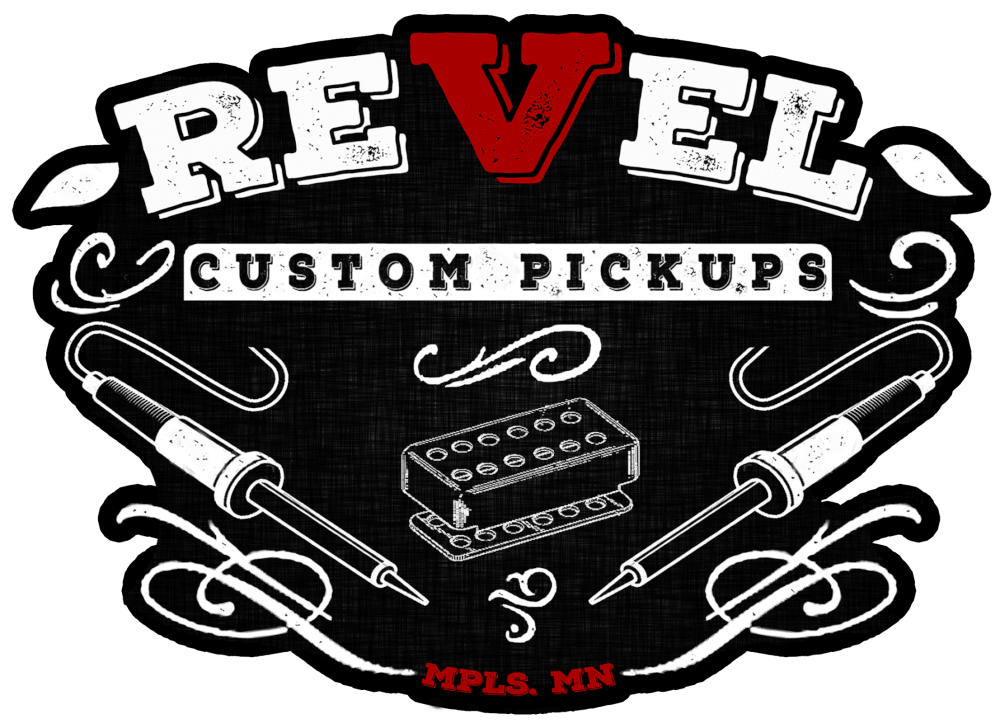Blog
Guitar Pickups – Myth, Marketing & Maxim
The following was written as a guest post for www.effectsbay.com.
Guitar Pickups – Myth, Marketing & Maxim
I’m a no b.s. sort of person. I like money as much as the next guy but I hate doing anything for money under false pretense. So when someone contacts me and says “I really want to sound like so and so, can you build me pickups that will get me close?” I have to have a conversation with them that often discourages them from doing business with me. And the gist of that conversation is: “Pickups will not make you sound like that player.”
It’s not a criticism or condescension or a burn. It’s just a fact. That player they love sounds the way they do on any old guitar.
But that’s also not to say that pickups don’t make a difference. They obviously do. They make a huge difference. They can completely change the tone of a guitar. They can reveal tones and harmonics you may have never heard before. They can blow open a guitar’s tonal capability. They can reinvigorate your playing. They are nearly an instrument unto themselves. And a player reaches a point when that difference is obvious enough to warrant something particular and special. That point is usually when they want to sound more like themselves than like anyone else.
Once that point is reached you will be overwhelmed with endless obfuscation. There will be wild tales of special winding patterns and vintage correct alloys and magnets with special gauss levels (magnetic flux density or “magnetic induction”) made that way by the high wizard of tone and wonder. It is a deep and confusing miasma of b.s.
That’s the reality of marketing. A certain Famous company has to market a certain pickup as “mid-scooped” just like the pickups played by this very famous musician because they are in the business of selling things, and that business makes understanding the guitar pickup a confusing matter. It can go so far as to make one think that it’s all nonsense.
But there is some magic involved.
I love southern food in general and gumbo in particular. I love gumbo like a drug. A very old southern cook book I once read referred to gumbo as an “occult science.” I believe that it is. Of course it is just rice and okra and shrimp and pork and seasonings. And even a mediocre gumbo can be pretty good just by the nature of those ingredients. But those ingredients combined in a particular way is something downright magical. And so it is with guitar pickups. The magic is the particular way the winder combines all the ingredients with their particular and refined method of tensioning and laying down the very fine copper coil wire.
It definitely borders on the esoteric which is why it’s tough to tell the difference between myth, marketing, and maxim.
Anyone can buy the ingredients and follow a recipe and get an at least passable gumbo. But once you’ve done it a hundred or a thousand times, well…once you’ve got it, you’ve got it.
And that’s what you’re buying when you buy a guitar pickup. There are only so many combinations of magnets and wires and baseplates and alloys and, by this time in the history of pickups, those combinations have certainly been exhausted. What you’re buying is the individual winders’ gumbo. The same old ingredients done in a particular and special way.
There are endless pickup makers out there. At the top of the game it’s not a matter of who makes the better pickup, it’s a matter of which flavor of pickup you prefer.
And yet, despite a winder’s particular tried and true “recipe,” that doesn’t mean the pickup will be superb for you. It may only be average. This could be because those pickups are more hype and cost than good tone. It could also be because those pickups just don’t jive with your guitar or your amp. Some pickups just sound better in different guitars and through different amps. Or maybe it’s because you’re hoping the pickups will do something only becoming a better player will do. I know that’s possible because I’ve been there myself.
You’ll only know once you try it. Yes, that’s an expensive bummer. But how could it be otherwise? I think most guitarists share the same research methodology. We either get a direct recommendation, in which case we’ve likely had the opportunity to hear the particular guitar or pickup or amp or pedal being recommended. Or we go online and read forums and reviews. We live in a great era of near endless information and reviews about often the most esoteric piece of gear. But who are the people reviewing? The majority are people in the honeymoon phase of ownership or the immediately disgruntled phase of about-to-return-ship.
And thus the rule: If it sounds good, it is good.
Many pickup makers, at some point, begin using cnc winders just like the bigger producers, for the sake of streamlining manufacturing. These machines are completely hands off. They do all the work. But the maker can get their product out faster using a machine. Which is…fine. Does it defeat the purpose of buying a custom or boutique pickup if the machine is doing all the work. No. And rare is the winder who is willing to share this info.
Many machine wound pickups sound amazing. These are usually pickups coming from long time makers.
There are winders who have bought old mechanical winders used by famous guitar and pickup manufacturers of old and use these to wind humbuckers that are, if you believe the hype, true and correct reproductions of a pickup that rarely sounded like any other pickup made on that machine in the first place. The pickups cost $260 a piece or more. Some people swear by them, other people think they were a waste of money. Are they worth the money and will they sound good in your guitar and with your amp and, and, and…?
Very unfortunately and, perhaps unfairly, I cannot answer these questions. You’ve read all this way and I may have only muddied the already nearly black waters.
Sorry.
EDIT: There were several paragraphs here that spoke about Asian made pickups. These comments were typically wildly misinterpreted and so I have deleted them. Much of the sentiment had to do with the labor involved in making a pickup. If you want to read about those ideas here’s a blog post titled: Boutique pickups vs cheap guitar pickups. Or, “Why do pickups cost so much?”
The other thing I can do is give you an idea of my “priorities of tone.” This isn’t really original thinking but here’s my own spin on it. In order of importance, this is where pickups come into play:
- Practice
- Practice and rehearsal
- Your amp
- The number of hours you have practiced and rehearsed
- Did you practice today?
- The guitar you play. This isn’t about exotic woods or mojo or mumbo jumbo. This is about having an instrument that feels good, has a comfortable nut width, etc.
- Guitar pickup
Obviously this is tongue in cheek. I just told you how life changing important a guitar pickup can be and I want you to seek and out find great pickups. But those pickups aren’t going to make the worst and cheapest twenty year old solid state amp sound amazing or a guitar you hate playing sound amazing.
But…in the context of what guitar pickups can do, a set of custom pickups compared to the thirty dollar pickups you can get anywhere and everywhere online that are made by a machine in some far away place…well, some things are indescribably great. You owe it to your obsession with tone to find out.

